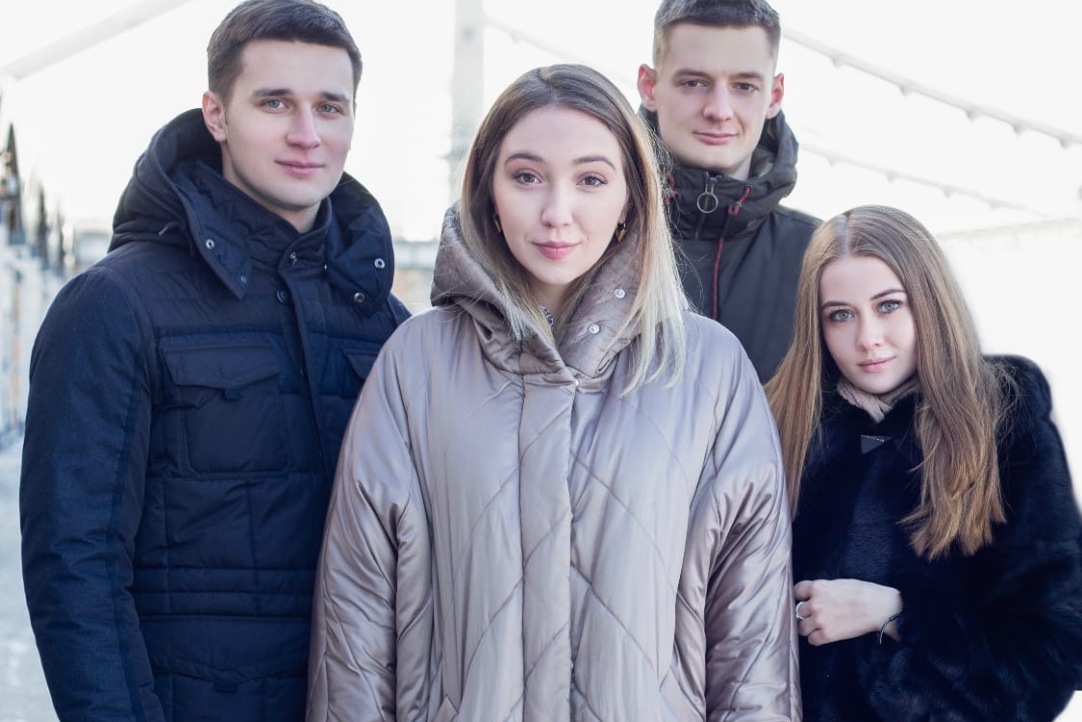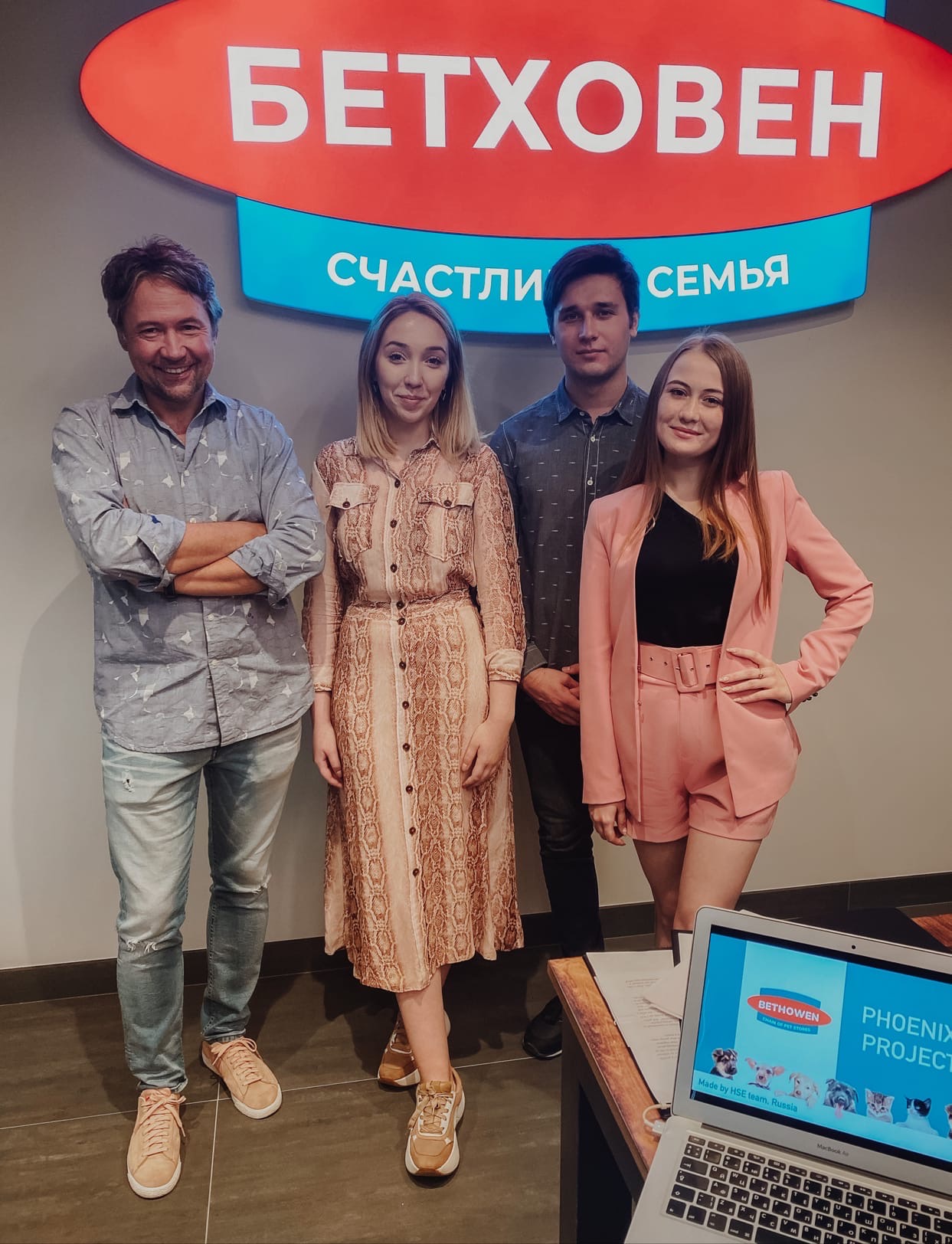Students of HSE Graduate School of Business Win in Future Retail Challenge 2020

Students of the Master's programme in ‘Retail Management’ of the Graduate School of Business are the first Russians to win the Future Retail Challenge, an international competition in which national student teams compete. The competition is held as part of the World Retail Congress, which has been held since 2007. The winners were announced at the World Retail Awards.
To qualify for the international competition, the team first had to win Russia’s national selection round, which was organized by the Retail Academy in December 2019.
The team included four second-year students of the Graduate School of Business: Victoria Isaeva (leader), Maria Kalinina (speaker), Lev Kobyakov, and Vyacheslav Tolstenko. The world competition is based on applied projects. The students analysed and worked on the concept of the Russian pet store chain, Beethoven. For the competition task, students came up with a project to renew the customer flow and sales of an offline store that faced some problems competing with online stores due to the pandemic.
‘We had to offer an innovative and at the same time budget-friendly idea that was economical enough to increase sales of this store and its competitiveness in the market,’ says team leader Victoria Isaeva.
As team member Lev Kobyakov explains, the Beethoven chain allocated one of its stores for the students’ project development. ‘Our main idea is to create a microecosystem consisting of small shops. The ecosystem should cover all the needs of the store’s customers: from purchasing a pet to caring for it. Beethoven adopted this concept and started implementing it, and we took it as the project starting point and developed the idea further.’ Students of the Graduate School of Business suggested strengthening the role of the local community of buyers and using innovative digital technologies available for the budget of a small store.

The HSE students faced their biggest competition from the team of the New York Fashion Institute of Technology. ‘They had a cool concept aimed at fashion retail. They proposed a new format of offline stores that combines the store and the point of order delivery,’ says Victoria Isaeva. ‘ They presented an excellent visualization, with fitting booths that look like space capsules. But the financial part was not fully calculated, and, judging by the jury's scores, economically their project required more investment than ours .’
By participating in the competition, students had an opportunity to communicate with the directors of large networks, and to present their ideas and projects to them. ‘In normal life, it is difficult to meet these people. It meant a lot to us to get to know them and get their advice,’ says Victoria Isaeva.
Of course, the students encountered some challenges while preparing for the competition. The team received the last brief of the contest in June, when there were only three months left to complete it. Due to the pandemic, the team's presentation in English before the international jury was held remotely. Next year the students plan to go to the congress as winners.
We hope that the pandemic will end, the borders will be open, and we will be able to interact with and get to know everyone. Doing it in person is much more enjoyable
The team members add that their studies in the Master's programme in ‘Retail Management’ helped them handle all the stages of their project for the competition. ‘During the lectures we analyzed all the existing trends in retail, which are relevant now and which will be in the future. Thanks to this, we managed to present our concept in detail,’ explains Victoria Isaeva. ‘Also during our studies, we prepared a project to open a store from the ground up. This helped us a lot to work out the store format during the competition. The programme is practice-oriented, and if you studied well, you can start your own business.’
Lev Kobyakov notes that he is very grateful to ‘Retail Management’ Programme Academic Supervisor Olga Oyner and all the teachers. ‘They regularly ask students what ideas they have to improve the programme, or what speakers we would like to invite to our classes. Thanks to them, the programme is developing.’

